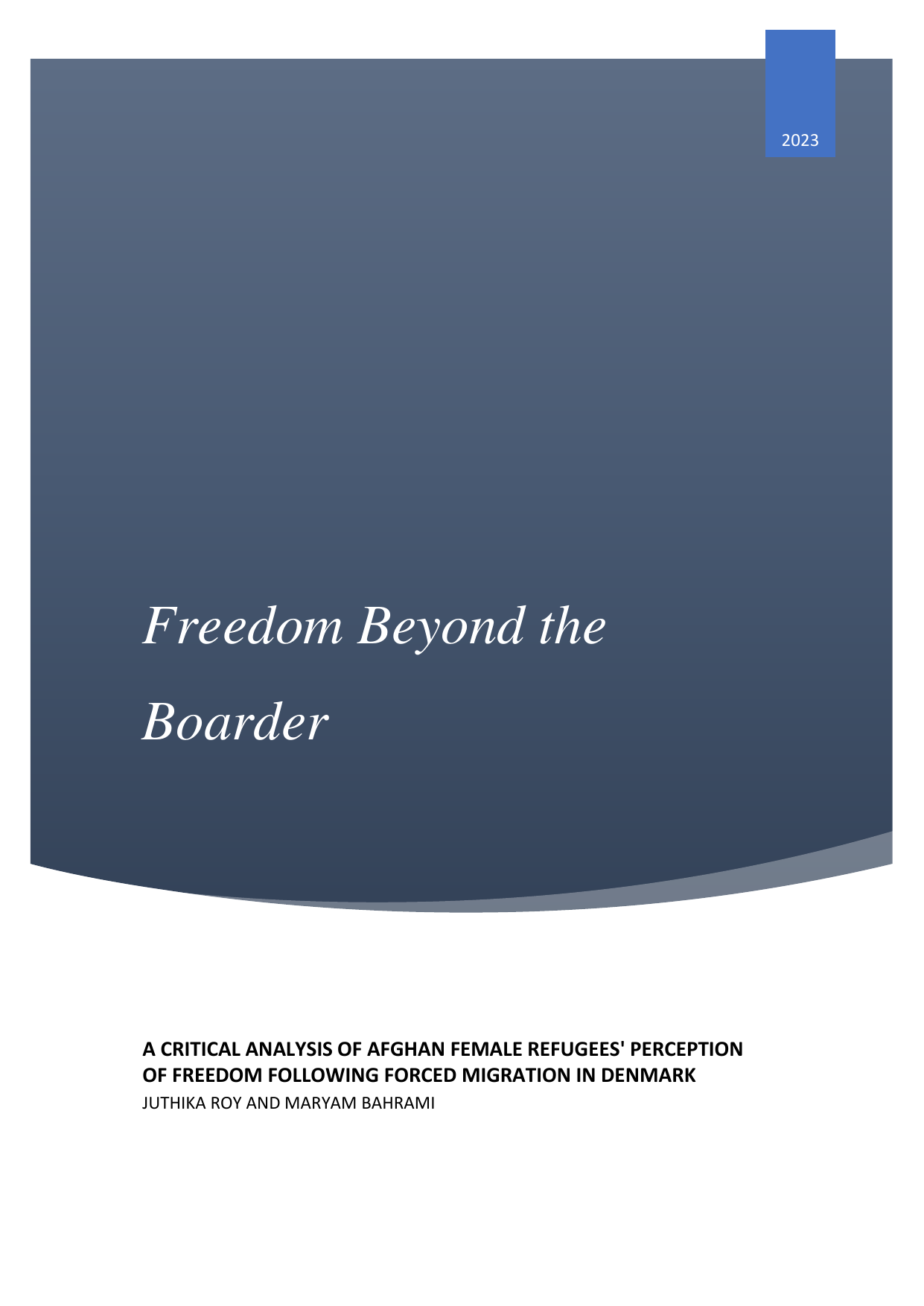
Freedom Beyond the Boarder: A critical analysis of Afghan Female Refugees' Perception on Freedom following Forced Migration in Denmark: A critical analysis of Afghan Female Refugees' Perception on Freedom following Forced Migration in Denmark
Authors
Term
4. term
Education
Publication year
2023
Submitted on
2023-05-30
Pages
92
Abstract
Throughout Afghanistan's history, Afghan women have faced numerous challenges and have been denied basic human rights, resulting in limited freedoms. Women's rights have experienced fluctuating progress and setbacks under various governmental regimes. The Taliban regime, which controlled Afghanistan from 1996 to 2001, severely restricted women’s rights, where women were largely confined to their houses and were denied access to education, healthcare, and employment opportunities. They were forced to wear veils and faced harsh punishments for violating the Taliban's strict interpretation of Islamic law. Following their fall in 2001, there was a heightened focus on modernizing Afghanistan and promoting women's development by subsequent governments. However, with the resurgence of the Taliban in 2021, Afghan women now face the imminent threat of being subjected to religious extremism and oppressive laws. As a result, many Afghan women have become refugees, compelled to seek security and freedom elsewhere. Denmark is one of the few countries granting asylum based on gender, considering their vulnerability, and ensuring security. This forced migration has dramatically altered their lives, exposing them to vulnerability in a new society as refugees, on the other hand, offering an opportunity from an egalitarian perspective to access previously unattainable rights. However, settling into new surroundings comes with cultural challenges that often lead to conflicting situations. This study focuses on integrating these women and girls from a freedom point of view. The central research question focuses on whether they have the freedom to choose their desired lifestyle in Denmark. The study utilizes a mixed-method analysis and incorporates theories such as Intersectionality, Social Dominance Theory, and Empowerment. In the end, the study validates that the perception of freedom in Afghan girls and women is relative and varies depending on multiple factors imposed on them, whereas the older generation’s perception of freedom restricts the younger generation from pursuing their preferred lifestyle choices. As a result, the potential outcomes include forced marriages, non-physical forms of violence, and the stigmatization of victims through honor shaming. However, different perceptions of freedom gradually converge, aligning with attaining all human rights.
Keywords
Documents
